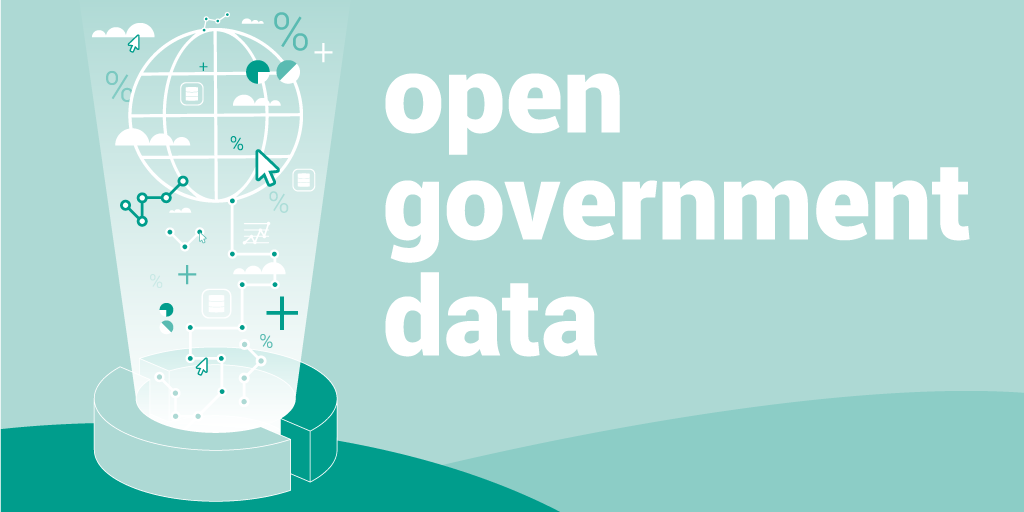The Best Impact of Open Data in Pakistan 2023

In recent years, open data has emerged as a powerful tool for promoting transparency, innovation, and economic growth in various countries, including Pakistan. With the availability of open data, citizens, businesses, and policymakers gain access to valuable information that can drive informed decision-making and societal progress. In this article, we will explore the best impacts of open data in Pakistan in 2023, highlighting its transformative effects in governance, health, education, and economic sectors.
Open data, in simple terms, refers to the idea of making government and organizational data freely available for public use, reuse, and redistribution. By releasing data in accessible formats, such as spreadsheets, APIs, and databases, open data initiatives aim to break down information barriers and foster collaboration between various stakeholders. The impact of open data lies in its ability to enable data-driven decision making, enhance accountability, and drive innovation.
Read More: Top 7 Benefits of Big Data Transforming Lives 2023
Open Data Initiatives in Pakistan
In recent years, Pakistan has made significant progress in embracing open data initiatives. The government and organizations have recognized the potential of open data in transforming governance, improving public services, and boosting economic growth. Several platforms and portals have been established to publish and share open data with the public, creating a culture of transparency and accountability.
These initiatives have led to a range of benefits and positive impacts in various sectors. Let’s explore some of the key areas where open data has made a difference in Pakistan.
Open Data in Governance

One of the most significant impacts of open data in Pakistan can be seen in governance. By making government data open and accessible, transparency and accountability are promoted, leading to increased trust and citizen engagement. Citizens can access information about government budgets, public expenditure, and service delivery, allowing them to hold authorities accountable for their actions.
Through open data, citizens can actively participate in decision making by analyzing and utilizing government data. This active engagement fosters a sense of ownership and empowerment among the public, contributing to the development of a participatory democracy. Furthermore, open data facilitates collaboration between the government and civil society organizations, enabling collective efforts in addressing societal challenges.
Several successful open data initiatives in governance have emerged in Pakistan. For example, the Punjab Open Budget Initiative provides citizens with detailed information on government budgets, expenditure, and development projects. This initiative has resulted in improved financial management, reduced corruption, and better utilization of public resources.
Open Data in Health and Education Sectors
In addition to governance, open data has had a significant impact on the health and education sectors in Pakistan. By making health-related data available to the public, open data initiatives have contributed to improving healthcare services and outcomes. Citizens can access data on healthcare facilities, disease outbreaks, and health indicators, allowing them to make informed decisions about their well-being.
Open data also plays a crucial role in enhancing access to quality education. By providing information on schools, enrollment rates, and educational resources, open data initiatives enable parents, students, and policymakers to identify gaps and take necessary steps to improve education systems. Furthermore, open data facilitates research and analysis, leading to evidence-based policymaking and targeted interventions.
Several successful cases exemplify the impact of open data in health and education in Pakistan. For instance, the Khyber Pakhtunkhwa Open Data Dashboard provides real-time data on healthcare facilities, availability of medicines, and disease prevalence. This data-driven approach has led to improved healthcare planning, resource allocation, and timely response to health emergencies.
Similarly, the Punjab Education Management Information System (PEMIS) collects and publishes data on school infrastructure, student enrollment, and teacher-student ratios. This initiative has helped identify areas with low education indicators, enabling targeted interventions to improve education quality and access.
Open Data for Economic Growth

Open data has emerged as a catalyst for economic growth in Pakistan. By making relevant data available to businesses, entrepreneurs, and researchers, open data initiatives promote innovation, entrepreneurship, and evidence-based decision making. Startups and businesses can utilize open data to identify market trends, understand consumer behavior, and develop data-driven strategies.
Moreover, open data helps in identifying investment opportunities and attracting foreign direct investment. By providing information on infrastructure, demographics, and economic indicators, open data initiatives create a conducive environment for businesses and investors. This leads to job creation, economic diversification, and overall economic growth.
Pakistan has witnessed success stories where open data has driven economic growth. For example, the Punjab Information Technology Board’s open data initiatives have fostered a thriving startup ecosystem in Lahore, attracting local and international investors. Startups leveraging open data have developed innovative solutions in agriculture, e-commerce, and transportation sectors, contributing to economic development.
Challenges and Solutions
While open data brings numerous benefits, there are challenges that need to be addressed for effective implementation. Data quality and availability pose significant hurdles, as data collection processes and standards need to be streamlined. Privacy and security concerns also arise when dealing with sensitive data, requiring robust data protection measures.
To overcome these challenges, capacity building and awareness programs are essential. Training government officials, organizations, and citizens on data management, analysis, and utilization can enhance the effectiveness of open data initiatives. Collaboration between stakeholders, including government, civil society, and private sector, is crucial for successful implementation and sustainability of open data projects.
Future Prospects and Recommendations
Looking ahead, there are several potential areas for expanding open data initiatives in Pakistan. Sectors such as agriculture, energy, and transportation can greatly benefit from open data, enabling data-driven solutions for addressing challenges and optimizing resource allocation. Furthermore, fostering a culture of data sharing and collaboration among different stakeholders can lead to more comprehensive and impactful open data initiatives.
To maximize the impact of open data, it is important to have a supportive policy framework. Governments should enact policies that promote open data, establish data governance frameworks, and ensure data privacy and security. Collaboration between the government, organizations, and citizens should be encouraged through partnerships, hackathons, and innovation challenges.
open data, Pakistan has been able to improve decision-making processes, enhance service delivery, and foster economic growth. Open data initiatives in governance have promoted transparency and accountability, allowing citizens to actively participate in the democratic process. Successful examples such as the Punjab Open Budget Initiative have demonstrated the positive outcomes of open data in financial management and resource allocation.
In the health and education sectors, open data has played a vital role in improving access to quality services. Through platforms like the Khyber Pakhtunkhwa Open Data Dashboard and the Punjab Education Management Information System (PEMIS), valuable information on healthcare facilities, disease outbreaks, school infrastructure, and student enrollment has been made available. These initiatives have facilitated evidence-based decision making, enabling targeted interventions and resource allocation to areas in need.
Furthermore, open data has become a catalyst for economic growth in Pakistan. By providing businesses, entrepreneurs, and researchers with valuable insights, open data initiatives have stimulated innovation and entrepreneurship. Startups leveraging open data have emerged, contributing to job creation and economic diversification. The Punjab Information Technology Board’s open data initiatives have successfully attracted local and international investors, fostering a thriving startup ecosystem.
However, the implementation of open data initiatives does face challenges. Ensuring data quality and availability, addressing privacy and security concerns, and building the necessary capacity and awareness among stakeholders are crucial. Robust data collection processes, data protection measures, and training programs are essential to overcome these challenges.
Looking ahead, there are promising prospects for expanding open data initiatives in Pakistan. Sectors like agriculture, energy, and transportation hold immense potential for utilizing open data to address challenges and optimize resource allocation. A supportive policy framework that promotes open data, establishes data governance frameworks, and ensures privacy and security is necessary for sustained growth in open data initiatives. Collaboration among the government, organizations, and citizens through partnerships and innovation challenges can further enhance the impact of open data.
Read More: 5 Best Software to Protect Your Data in 2023
In conclusion
open data has had a profound impact on Pakistan in 2023, driving transparency, citizen engagement, and innovation. Through initiatives in governance, health, education, and economic sectors, Pakistan has harnessed the power of open data to improve decision making, enhance service delivery, and foster economic growth. With continued efforts and collaboration, open data will continue to play a pivotal role in shaping a brighter future for Pakistan.
FAQs
How can open data benefit citizens in Pakistan?
Open data enables citizens to access valuable information about government operations, health services, education, and more. This empowers citizens to make informed decisions, hold authorities accountable, and actively participate in the democratic process.
What measures are in place to protect the privacy of sensitive data in open data initiatives?
Open data initiatives should adhere to robust data protection measures, ensuring the anonymization and secure handling of sensitive information. Legal frameworks and policies can provide guidelines for data privacy and security.
How can businesses leverage open data to drive innovation and growth?
Businesses can utilize open data to identify market trends, consumer behavior, and investment opportunities. By incorporating data-driven strategies, businesses can innovate and make informed decisions, leading to growth and success.
How can the government promote collaboration in open data initiatives?
The government can encourage collaboration by fostering partnerships between government agencies, organizations, and citizens. Hosting hackathons, innovation challenges, and creating platforms for data sharing can facilitate collaboration and collective efforts.
What role does open data play in addressing societal challenges in Pakistan?
Open data provides valuable insights and information that can aid in identifying and addressing societal challenges. By analyzing data, policymakers and stakeholders can develop targeted interventions, allocate resources effectively, and make evidence-based decisions to overcome challenges.












One Comment